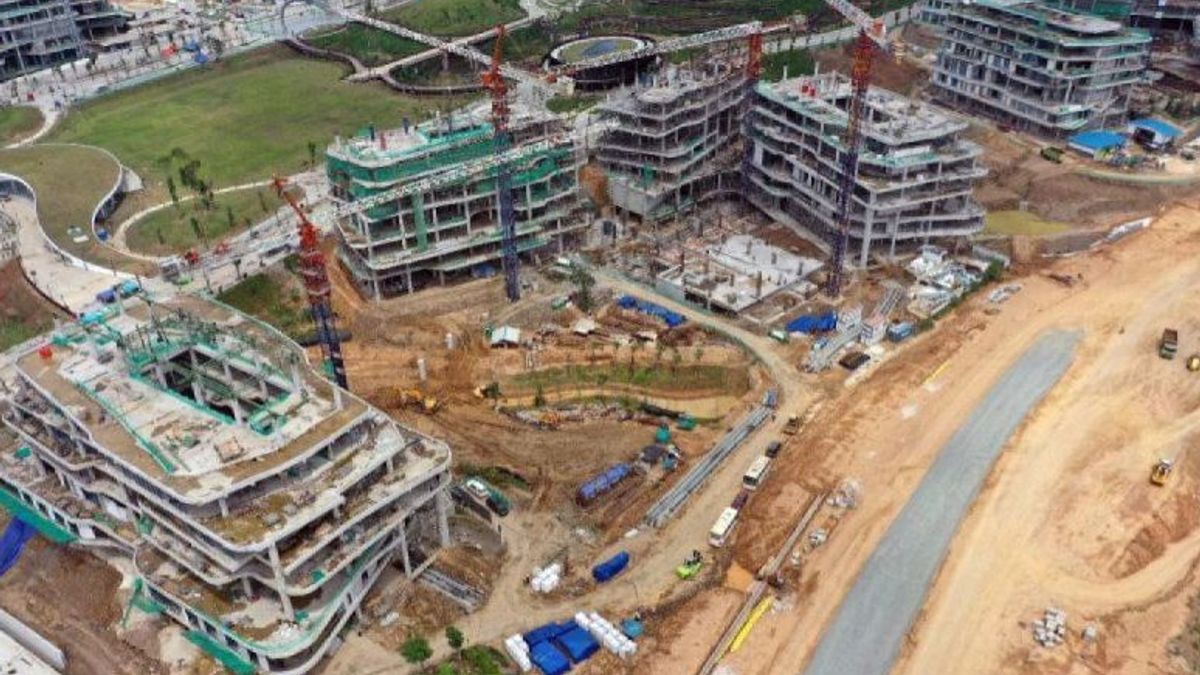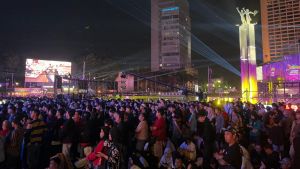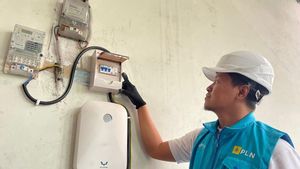JAKARTA - Member of Commission II DPR RI Mardani Ali Sera highlighted the Government's policy of granting permits to investors to obtain Cultivation Rights (HGU) in the capital city of Nusantara (IKN) up to 190 years for two cycles. Mardani assessed that the government was ignorant of the interests of the people.
"HGU is sold for up to 190 years, this is called IKN for sale. Hong Kong alone is only 99 years old for giving HGU, even then not many have entered," said Mardani Ali Sera, Saturday, July 13.
To note, the provision of HGU up to 190 years for two cycles for investors is marked by the signing of Presidential Regulation (Perpres) Number 75 of 2024 concerning the Acceleration of Development of the Archipelago Capital City (IKN) signed by President Joko Widodo (Jokowi).
In 9 paragraph (1) of the regulation, the Archipelago Capital Authority (OIKN) can guarantee certainty of the term of land rights through the first 1 cycle. OIKN can provide an extension in the second cycle to business actors or investors, which are contained in the agreement.
In more detail, the regulation allows the period of time for HGU to be given to the private sector for up to 95 years in the first cycle. Extensions for the second cycle are also given for a period of 95 years. Thus, the HGU that can be given to investors in IKN can reach 190 years.
According to the chairman of the PKS DPP, the provision of control over land for investors at IKN Nusantara is like Dutch colonialism in Indonesia, which has reached hundreds of years.
"The Dutch colony alone really maintains land administration. Its designation must be appropriate," said Mardani.
SEE ALSO:
Two cycles of extension also apply to land rights in the form of rights to use or building rights (HGB) at IKN. Initially, the right to use in IKN will be granted for 80 years. However, concession holders can then apply for an extension for the second 80-year period based on the criteria and stages of evaluation. This means that the concession given in terms of HBG reaches 160 years.
"Everything should be maintained for long-term purposes, not in the short term," said Mardani.
Legislators from the DKI Jakarta electoral district I also said that the rules regarding land tenure in IKN were against the constitution. Mardani reminded that the principle of the state's right to control Earth, Water and Space as well as the principles of people's sovereignty in the economic field is regulated in Article 33 of the 1945 Constitution.
"This clearly shows the Government's alignment with capital owners, pampers investors, and vice versa ignores the interests of the wider people," he said.
The concession policy at IKN is also said to be contrary to the Constitutional Court's Decision Number 21-22/PUU-V/2007 concerning Investment (PM Law) against the constitution.
"The Constitutional Court's decision states that the principle of extending such land rights is against the constitution," said Mardani.
Furthermore, the regulation on land rights that gives concession investors up to hundreds of years is said to further widen the inequality in land tenure. Mardani assessed that people who have been marginalized or marginalized will be the most affected.
Like indigenous peoples, farmers, and fishermen. The HGU and HGB rules at IKN legalize land monopoly by the private sector. Imagine that entrepreneurs control land for almost 2 centuries, "said the member of the Commission in the DPR in charge of Domestic, Land and Agrarian Reform affairs.
In fact, according to Mardani, Law No. 5 of 1960 concerning the Basic Regulations of Agrarian Principles clearly asks the Government to prevent private monopoly practices.
"If it continues like this, when will indigenous peoples, farmers, fishermen, and small communities in Kalimantan have access to land? They will be isolated in their own land," said Mardani.
The HGU rules for up to 190 years and HGB for up to 160 years were also called Mardani contrary to the agrarian reform that had been echoed by the Jokowi government.
"The meaning of agrarian reform is one of the things to avoid land inequality. With this regulation, Jokowi's promise regarding agrarian reforms is just a promise," he concluded.
The English, Chinese, Japanese, Arabic, and French versions are automatically generated by the AI. So there may still be inaccuracies in translating, please always see Indonesian as our main language. (system supported by DigitalSiber.id)
















